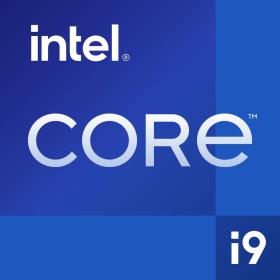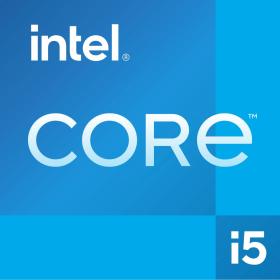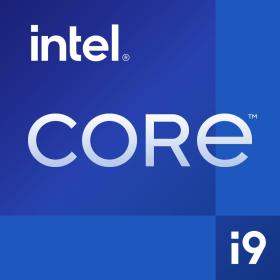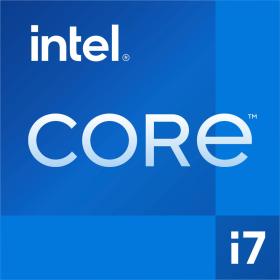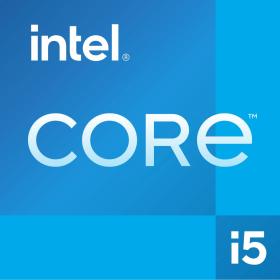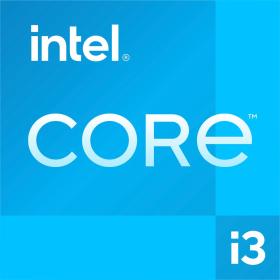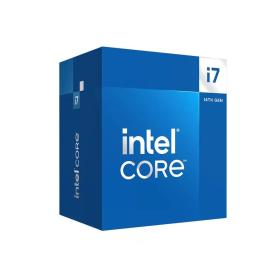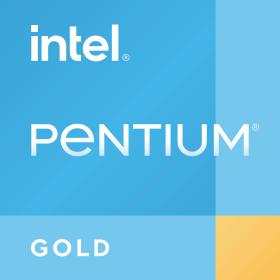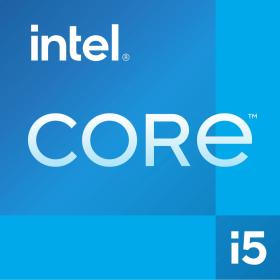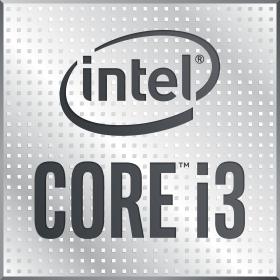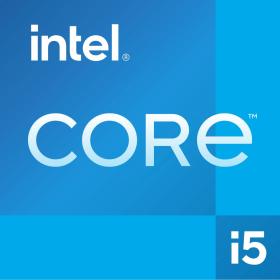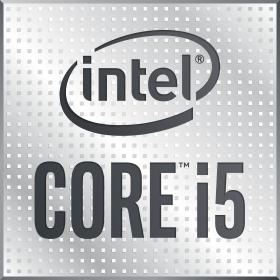Intel Core i7-13700 processor 30 MB Smart Cache Box
Intel Core i7-13700, Intel® Core™ i7, LGA 1700, Intel, i7-13700, 64-bit, 13th gen Intel® Core™ i7
SADDYTECH CONSIGLIA TRIPPODO
VALIDO CON TRIPPODO PLUS
● Prodotto nuovo.
● Garanzia 24 mesi.
● Soddisfatto o rimborsato 30 giorni.
● Lavorazione entro 1/2 giorni lavorativi.
● Consegna entro 4 giorni lavorativi.
● Sabato e Domenica esclusi.
● Gli ordini effettuati dopo le 13.00 verranno elaborati il giorno seguente.
Intel® Trusted Execution Technology for safer computing is a versatile set of hardware extensions to Intel® processors and chipsets that enhance the digital office platform with security capabilities such as measured launch and protected execution. It enables an environment where applications can run within their own space, protected from all other software on the system.
Intel® Virtualization Technology for Directed I/O (VT-d)
Intel® Virtualization Technology for Directed I/O (VT-d) continues from the existing support for IA-32 (VT-x) and Itanium® processor (VT-i) virtualization adding new support for I/O-device virtualization. Intel VT-d can help end users improve security and reliability of the systems and also improve performance of I/O devices in virtualized environments.
Intel® Virtualization Technology (VT-x)
Intel® Virtualization Technology (VT-x) allows one hardware platform to function as multiple “virtual” platforms. It offers improved manageability by limiting downtime and maintaining productivity by isolating computing activities into separate partitions.
Intel® 64
Intel® 64 architecture delivers 64-bit computing on server, workstation, desktop and mobile platforms when combined with supporting software.¹ Intel 64 architecture improves performance by allowing systems to address more than 4 GB of both virtual and physical memory.
Intel® Clear Video HD Technology
Intel® Clear Video HD Technology, like its predecessor, Intel® Clear Video Technology, is a suite of image decode and processing technologies built into the integrated processor graphics that improve video playback, delivering cleaner, sharper images, more natural, accurate, and vivid colors, and a clear and stable video picture. Intel® Clear Video HD Technology adds video quality enhancements for richer color and more realistic skin tones.
Cache
CPU Cache is an area of fast memory located on the processor. Intel® Smart Cache refers to the architecture that allows all cores to dynamically share access to the last level cache.
Intel® AES New Instructions
Intel® AES New Instructions (Intel® AES-NI) are a set of instructions that enable fast and secure data encryption and decryption. AES-NI are valuable for a wide range of cryptographic applications, for example: applications that perform bulk encryption/decryption, authentication, random number generation, and authenticated encryption.
Idle States
Idle States (C-states) are used to save power when the processor is idle. C0 is the operational state, meaning that the CPU is doing useful work. C1 is the first idle state, C2 the second, and so on, where more power saving actions are taken for numerically higher C-states.
Intel® Turbo Boost Technology
Intel® Turbo Boost Technology dynamically increases the processor's frequency as needed by taking advantage of thermal and power headroom to give you a burst of speed when you need it, and increased energy efficiency when you don’t.
Max Turbo Frequency
Max Turbo Frequency is the maximum single-core frequency at which the processor is capable of operating using Intel® Turbo Boost Technology and, if present, Intel® Turbo Boost Max Technology 3.0 and Intel® Thermal Velocity Boost. Frequency is typically measured in gigahertz (GHz), or billion cycles per second.
Execute Disable Bit
Execute Disable Bit is a hardware-based security feature that can reduce exposure to viruses and malicious-code attacks and prevent harmful software from executing and propagating on the server or network.
Intel® Hyper-Threading Technology
Intel® Hyper-Threading Technology (Intel® HT Technology) delivers two processing threads per physical core. Highly threaded applications can get more work done in parallel, completing tasks sooner.
Instruction Set
An instruction set refers to the basic set of commands and instructions that a microprocessor understands and can carry out. The value shown represents which Intel’s instruction set this processor is compatible with.
Intel® Quick Sync Video
Intel® Quick Sync Video delivers fast conversion of video for portable media players, online sharing, and video editing and authoring.
Intel vPro® Platform Eligibility
The Intel vPro® platform is a set of hardware and technologies used to build business computing endpoints with premium performance, built-in security, modern manageability and platform stability.
Intel® VT-x with Extended Page Tables (EPT)
Intel® VT-x with Extended Page Tables (EPT), also known as Second Level Address Translation (SLAT), provides acceleration for memory intensive virtualized applications. Extended Page Tables in Intel® Virtualization Technology platforms reduces the memory and power overhead costs and increases battery life through hardware optimization of page table management.
Enhanced Intel SpeedStep® Technology
Enhanced Intel SpeedStep® Technology is an advanced means of enabling high performance while meeting the power-conservation needs of mobile systems. Conventional Intel SpeedStep® Technology switches both voltage and frequency in tandem between high and low levels in response to processor load. Enhanced Intel SpeedStep® Technology builds upon that architecture using design strategies such as Separation between Voltage and Frequency Changes, and Clock Partitioning and Recovery.
Secure Key
Intel® Secure Key consists of a digital random number generator that creates truly random numbers to strengthen encryption algorithms.
Intel® Speed Shift Technology
Intel® Speed Shift Technology uses hardware-controlled P-states to deliver dramatically quicker responsiveness with single-threaded, transient (short duration) workloads, such as web browsing, by allowing the processor to more quickly select its best operating frequency and voltage for optimal performance and power efficiency.
Intel® Deep Learning Boost (Intel® DL Boost) on CPU
A new set of embedded processor technologies designed to accelerate AI deep learning use cases. It extends Intel AVX-512 with a new Vector Neural Network Instruction (VNNI) that significantly increases deep learning inference performance over previous generations.
Instruction Set Extensions
Instruction Set Extensions are additional instructions which can increase performance when the same operations are performed on multiple data objects. These can include SSE (Streaming SIMD Extensions) and AVX (Advanced Vector Extensions).
Intel® Turbo Boost Max Technology 3.0 Frequency
Intel® Turbo Boost Max Technology 3.0 identifies the best performing core(s) on a processor and provides increased performance on those cores through increasing frequency as needed by taking advantage of power and thermal headroom. Intel® Turbo Boost Max Technology 3.0 frequency is the clock frequency of the CPU when running in this mode.
Intel® Turbo Boost Max Technology 3.0
Intel® Turbo Boost Max Technology 3.0 identifies the best performing core(s) on a processor and provides increased performance on those cores through increasing frequency as needed by taking advantage of power and thermal headroom.
Thermal Monitoring Technologies
Thermal Monitoring Technologies protect the processor package and the system from thermal failure through several thermal management features. An on-die Digital Thermal Sensor (DTS) detects the core's temperature, and the thermal management features reduce package power consumption and thereby temperature when required in order to remain within normal operating limits.
Intel® Volume Management Device (VMD)
Intel® Volume Management Device (VMD) provides a common, robust method of hot plug and LED management for NVMe-based solid state drives.
Intel® Gaussian & Neural Accelerator
Intel® Gaussian & Neural Accelerator (GNA) is an ultra-low power accelerator block designed to run audio and speed-centric AI workloads. Intel® GNA is designed to run audio based neural networks at ultra-low power, while simultaneously relieving the CPU of this workload.
Mode-based Execute Control (MBEC)
Mode-based Execute Control can more reliably verify and enforce the integrity of kernel level code.
Intel® Stable IT Platform Program (SIPP)
The Intel® Stable IT Platform Program (Intel® SIPP) aims for zero changes to key platform components and drivers for at least 15 months or until the next generational release, reducing complexity for IT to effectively manage their computing endpoints.
Intel® Boot Guard
Intel® Device Protection Technology with Boot Guard helps protect the system’s pre-OS environment from viruses and malicious software attacks.
Intel® Control-Flow Enforcement Technology
CET - Intel Control-flow Enforcement Technology (CET) helps protect against the misuse of legitimate code snippets through return-oriented programming (ROP) control-flow hijacking attacks.
Intel Core i7-13700. Processor family: Intel® Core™ i7, Processor socket: LGA 1700, Processor manufacturer: Intel. Memory channels: Dual-channel, Maximum internal memory supported by processor: 192 GB, Memory types supported by processor: DDR4-SDRAM, DDR5-SDRAM. On-board graphics card model: Intel UHD Graphics 770, On-board graphics card outputs supported: Embedded DisplayPort (eDP) 1.4b, DisplayPort 1.4a, HDMI 2.1, On-board graphics card base frequency: 300 MHz. Market segment: Desktop, Use conditions: PC/Client/Tablet, Workstation, PCI Express slots version: 5.0, 4.0. Intel® Turbo Boost Max Technology 3.0 frequency: 5.2 GHz
| Processore | |
| Produttore processore | Intel |
| Famiglia processore | Intel® Core™ i7 |
| Generazione del processore | Intel® Core™ i7 di 13a generazione |
| Modello del processore | i7-13700 |
| Numero di core del processore | 16 |
| Presa per processore | LGA 1700 |
| Scatola | Sì |
| Raffreddatore incluso | Sì |
| Numero di threads del processore | 24 |
| Modalità di funzionamento del processore | 64-bit |
| Core delle prestazioni | 8 |
| Cores efficienti | 8 |
| Frequenza del processore turbo massima | 5,2 GHz |
| Frequenza di boost del core delle prestazioni | 5,1 GHz |
| Frequenza di base del core delle prestazioni | 2,1 GHz |
| Frequenza boost core efficiente | 4,1 GHz |
| Frequenza base core efficiente | 1,5 GHz |
| Cache processore | 30 MB |
| Tipo di cache del processore | Cache intelligente |
| Massima potenza turbo | 219 W |
| Tipo di bus | DMI4 |
| Numero massimo di corsie DMI | 8 |
| Banda di memoria supportata dal processore (max) | 89,6 GB/s |
| Nome in codice del processore | Raptor Lake |
| Processore ARK ID | 230490 |
| Memoria | |
| Memoria interna massima supportata dal processore | 192 GB |
| Tipologie di memoria supportati dal processore | DDR4-SDRAM, DDR5-SDRAM |
| Canali di memoria | Dual-channel |
| Non-ECC | Sì |
| Larghezza memoria della banda (massima) | 89,6 GB/s |
| Grafica | |
| Adattatore di scheda grafica separato | No |
| Modello scheda grafica integrata | Intel UHD Graphics 770 |
| Uscite supportate dell'adattatore della scheda grafica integrata | Embedded DisplayPort (eDP) 1.4b, DisplayPort 1.4a, HDMI 2.1 |
| Frequenza dinamica dell'adattatore della scheda grafica integrata (max) | 1600 MHz |
| Numero di visualizzazioni (scheda grafica integrata) | 4 |
| Versione OpenGL dell'adattatore della scheda grafica integrata | 4.5 |
| Risoluzione massima dell'adattatore della scheda grafica integrata (HDMI) | 4096 x 2160 Pixel |
| Frequenza di aggiornamento dell'adattatore grafico a bordo alla massima risoluzione (HDMI) | 60 Hz |
| ID dell'adattatore della scheda grafica installata | 0xA780 |
| Scheda grafica dedicata | Non disponibile |
| Numero di unità di esecuzione | 32 |
| Motori codec multiformato | 2 |
| Caratteristiche | |
| Tecnologia Thermal Monitoring | Sì |
| Segmento di mercato | Desktop |
| Condizioni d'uso | PC/Client/Tablet, Stazione di lavoro |
| Numero massimo di corsie Express PCI | 20 |
| Versione degli slot PCI Express | 5.0, 4.0 |
| configurazione PCI Express | 1x16+1x4, 2x8+1x4 |
| Istruzioni supportate | SSE4.1, SSE4.2, AVX 2.0 |
| Revisione DMI (Direct Media Interface) | 4.0 |
| Numero di classificazione del controllo delle esportazioni (ECCN) | 5A992C |
| Sistema di tracciamento automatico della classificazione delle merci (CCATS) | 740.17B1 |
| Caratteristiche speciali del processore | |
| Tecnologia Intel® Speed Shift | Sì |
| Intel® Turbo Boost Max Technology 3.0 frequency | 5,2 GHz |
| Intel® Gaussian & Neural Accelerator (Intel® GNA) 3.0 | Sì |
| Intel® Control-flow Enforcement Technology (CET) | Sì |
| Intel Thread Director | Sì |
| Tecnologia Intel® Virtualization con protezione da reindirizzamento (VT-rp) | Sì |
| Idoneità della piattaforma Intel vPro® Essentials | Sì |
| Condizioni ambientali | |
| Tjunction | 100 °C |
| Dimensioni e peso | |
| Dimensione della confezione del processore | 45 x 37.5 mm |
| Altre caratteristiche | |
| RAM massima supportata | 192 GB |
| Uscita grafica | eDP 1.4b, DP 1.4a, HDMI 2.1 |
- Processor family
- Intel® Core™ i7
- Processor cores
- 16
- Processor socket
- LGA 1700
- Box
- Y
- Processor manufacturer
- Intel
- Processor model
- i7-13700
- Processor operating modes
- 64-bit
- Memory channels
- Dual-channel
- On-board graphics adapter
- Y
- Discrete graphics adapter
- N
- On-board graphics adapter model
- Intel UHD Graphics 770
- Discrete graphics adapter model
- Not available
- Cooler included
- Y
SHIPMENTS
All shipments are processed from our offices in Rome and are handled by leading international couriers based on the final destination, weight and value of the order.
Orders are processed within 2 business days.
The delivery of the products is carried out within 4 working days from the confirmation of the order (you will receive an email containing the tracking code of your order).
The courier delivers from Monday to Friday between 8.30 and 18.00.
It is not possible in any way to fix the time and / or day of delivery of the products, nor is it possible to request delivery to post office boxes.
The contribution for transport costs calculated during the order may vary in cases where the bulk and / or weight of the goods exceeds the minimum weight / overall dimensions.
Should the shipping address differ from the billing address, please specify it in the notes accompanying the order to avoid unnecessary delays.
RIGHT OF WITHDRAWAL
To exercise the right of withdrawal, you must inform us (APPIEFFE GROUP SRL, Via Codigoro 9, 00127 Rome, Tel +39 06 92939466, email: info@trippodo.com) of your decision to withdraw from this contract by means of a declaration explicit (e.g. letter sent by post, fax or e-mail). To this end, you can use the attached withdrawal form, but it is not mandatory. To meet the withdrawal deadline, it is sufficient for you to send the relevant communication
to exercise the right of withdrawal before the expiry of the withdrawal period.
Pursuant to art. 5 of Legislative Decree 206/2005, the Customer who purchases goods for purposes not related to his professional activity and therefore makes the purchase indicating the Fiscal Code and not the VAT number, has the right to withdraw from the remote purchase contract within 14 calendar days starting from receipt of the order (Legislative Decree 21/2014 of 21 February 2014) by preferably sending a communication by registered letter with return receipt at the address:
APPIEFFE GROUP SRL
Via Codigoro 9
00127 Rome
or at the email address info@trippodo.com or by fax at +39 06 99367459.
It is possible to send a PEC (Certified Electronic Mail) instead of the registered letter to the address appieffegroup@pec.it only if this is sent in turn from a certified email address.
It is also possible to request the right of withdrawal via the "GOODS RETURN" link in the customer profile of our site, once logged in with login and password, without necessarily sending registered letters or other communications.
The refund will be made within 14 calendar days from the arrival of the object at our office.
NB: The costs of returning defective or non-compliant goods will be at our expense.
APPIEFFE GROUP SRL is not liable for any damage that the goods may suffer during transport, nor for any theft, loss or tampering that may occur in this phase. It is therefore suggested to make insured shipments.







